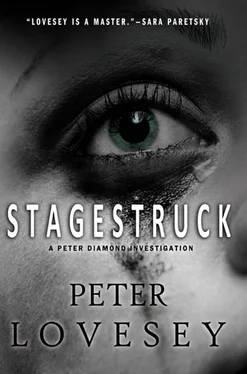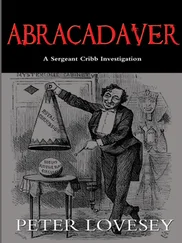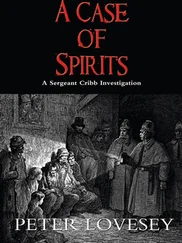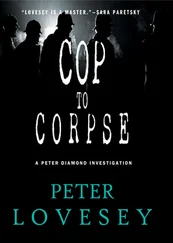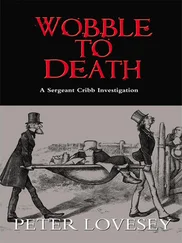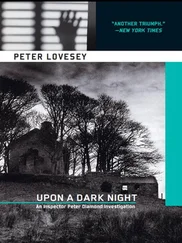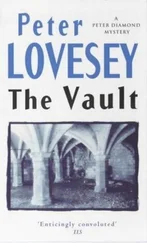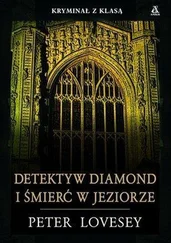He could see that. A victim unwilling to speak. An injury of uncertain origin. And a potential law suit. ‘Whoever takes it on,’ he said, meaning anyone except himself, ‘getting started won’t be easy. Everyone’s going to be on their guard.’ ‘Uniform managed to get some interviews at the theatre this morning.’ ‘That’s something, then. Who did we send?’ ‘Sergeant Dawkins.’ Diamond’s face creased as if caught by a sudden Arctic gust. ‘Him, of all people? That’s not good.’ ‘What’s the matter with Dawkins?’ ‘How long have you got? Five minutes in his company would tell you. He keeps asking to join CID. He thinks it’s personal each time I turn him down.’ ‘And is it?’ Diamond blew a soft raspberry. ‘He’d be a nightmare.’ Georgina said, ‘My contacts with him have always been agreeable. In my estimation he’s a man of culture.’ In Georgina’s estimation most policemen were not cultured,
and some were uncouth, Peter Diamond more than most. ‘Opinionated.’ ‘I don’t hold that against him. But enough of Dawkins.
It’s your case from now on. Handle it with kid gloves, Peter.’ His case? This wasn’t how she’d started. Hadn’t she talked about being primed and ready to spring?
‘I’d rather not. Theatre people aren’t my cup of tea.’ How feeble was that? He berated himself as the words came out. Working in a theatre is your worst nightmare. Tell her there’s no way you’re getting lumbered. But he was too late.
‘They’re very friendly,’ she said. ‘That’s half the problem. I’ll delegate.’ ‘What?’ ‘A good opportunity for one of my more experienced people.’ ‘No.’ A flat, unqualified negative. ‘I want you for this, Peter.’ He changed tack. ‘I’ll call in forensics, then.’ She gave a gasp of disapproval. ‘We’re not being as obvious as that. The make-up is being analysed in the hospital lab. There was a towel Clarion pressed to her face after she left the stage. Quite a lot of the greasepaint, or whatever she was wearing, rubbed off. They need to know if it was contaminated in some way, so that they can give the right treatment. We’ll find out soon enough.’
‘It’s strange,’ he said, getting drawn in, in spite of all his misgivings.
‘What is?’
‘If the make-up was responsible, why didn’t it hurt her when it was first put on? She got on the stage before the pain kicked in. She must have been made up – what? – ten minutes earlier. Twenty? If it was acid, or something, you’d expect her to have been screaming long before she made her entrance.’
‘It is rather hard to understand,’ Georgina said.
‘To me it sounds more like an allergic reaction that took time to develop.’
‘If that’s all it was, we can breathe again. I hope you’re right, Peter. But can a skin allergy be as violent as that? Does it actually burn the flesh?’
There were lunchtimes when Diamond escaped from Man-vers Street police station and found sanctuary in places where no one would bother his head about targets and budget reports and activity-based costing. The city of Bath had enough pubs to suit all his moods, from the Old Green Tree, sedate as a private club with its home cooking and wood panelling, to the garish Hobgoblin, where the boneshaking beat of heavy metal was enough to drive out anybody’s demons. Today he’d decided on the Garrick’s Head, adjoining the Theatre Royal. A couple of beers with the backstage lads would be an agreeable way to check Georgina’s story.
Originally – in about 1720 – the building had been a private house, the home of Beau Nash, the Master of Ceremonies who made the city fashionable. It became a drinking house in 1805 when the theatre was built next door. Outside, a bust of the actor David Garrick dignifies the façade, but Diamond wasn’t looking upwards. He stepped in, ordered his pint of British Red and took it to the black sofa under the window. The dark wood panelling, board floor and traditional fireplace fitted his expectation of what a public bar should be. He didn’t care for patterned wallpaper and fitted carpets. Even better, someone had left the Daily Telegraph on the sofa, so he opened it and read about the ‘indisposition’ of the star of I Am a Camera. Restrained, even by Telegraph standards. The tabloids no doubt trumpeted Clarion’s agony scream by scream.
He hadn’t yet briefed his team. Truth to tell, he wasn’t confident he had the facts straight. Illusion and special effects were the stock-in-trade of theatres, so he was wary of anything that happened on a stage in front of an audience, even when it was unscripted. Several hundred theatre-goers believed they’d witnessed an acutely painful and distressing incident and probably they had, but it couldn’t be taken as fact without investigation. Clarion’s burns were real according to the hospital reports, yet the way they had been inflicted gave cause for uncertainty. If, as everyone supposed, the make-up had caused the damage, why hadn’t she screamed in pain at the time it was applied, or immediately after?
His other concern was the possibility of fraud. By all accounts, Clarion the pop singer was on the skids and looking for alternative employment. She’d been hired by the theatre to play a nightclub singer. Typecasting, you might say, and a one-off. Did anyone expect she would go on to a second career in acting? As things had turned out, she’d done the minimum of acting and was expected to sue the theatre for a huge sum, enough for a long and comfortable retirement. Of course the scarring would need to be permanent to convince a court. A grim possibility: had she injured herself for the prospect of a multi-million-pound settlement?
Two conversations were in progress and one was getting interesting. Diamond put a hand over his ear to block out the woman at the next table talking about last night’s East-Enders and tried instead to listen to the man on a bar stool in dialogue with the barmaid.
‘It’s obvious she’s deeply troubled.’
He heard the barmaid say, ‘I wouldn’t know.’
‘You work here, love, so you can’t ignore it.’
‘Try me. She hasn’t been in for a drink.’
‘Don’t be like that,’ the man said. ‘Personally, I find the whole thing heartbreaking. She’s there on stage and this gorgeous man in one of the upper boxes seems to be giving her the come-on, so she tries to signal that she’s interested. In fact she’s a lot more than interested. She’s practically shinning up the curtain to get at him. And this meanie doesn’t even ask her out. He cuts her dead, so in desperation… we both know what she did.’
‘If you want to believe it.’
‘Now, come on. It’s common knowledge round here. Do you know which door she used?’
‘Door? Oh, I get you. No, and I haven’t asked.’
‘It may be the one behind you. I couldn’t stay in the job if I were you.’
‘It doesn’t bother me.’
‘If you saw her, it would.’
‘But I haven’t.’
‘Never smelt jasmine around the bar?’
The girl laughed. ‘You get all sorts of smells in this place. Why, is jasmine what she uses?’
‘Exclusively. I’ve smelt it myself.’
‘Where?’
‘In the corridor behind the royal circle.’
Curiosity got the better of Diamond. He turned in his chair. ‘I couldn’t help overhearing what you’re saying. This woman you’re talking about. Who is she?’
‘I wouldn’t call her a woman if I were you,’ the man said.
‘I misheard, then.’
‘The grey lady,’ the man said, smoothing his tie and treating Diamond to a dazzling smile. He didn’t fit Diamond’s image of a scene-shifter, but he seemed to know what he was talking about. ‘She’s our theatre ghost.’
Читать дальше
